掲示板 Forums - Showing Kanji Over Kana
Top > renshuu.org > Questions about renshuu Getting the posts
Top > renshuu.org > Questions about renshuu
In the account settings, we have the option to make Renshuu always show kanji, even if the word is normally written in kana for all words.
What I'm wondering: Is there a way to do that same thing, but only for specific terms/words, rather than everything?
Ex: I've recently been studying a schedule of mine that contained 要る, and everyday until today, for over a month, it has shown in the studying as 要る, but now shows only as いる, despite me not changing anything, which annoys me, because I want to study it, and other words, with the kanji. However, I don't want ALL terms to always show in kanji form, such as how I want くん to show as くん not as 君.
Is there a way to do this?
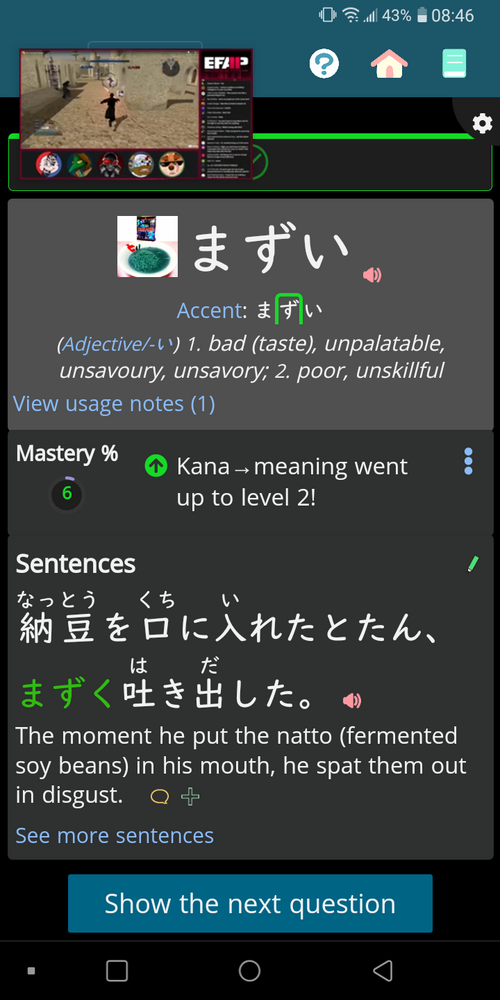
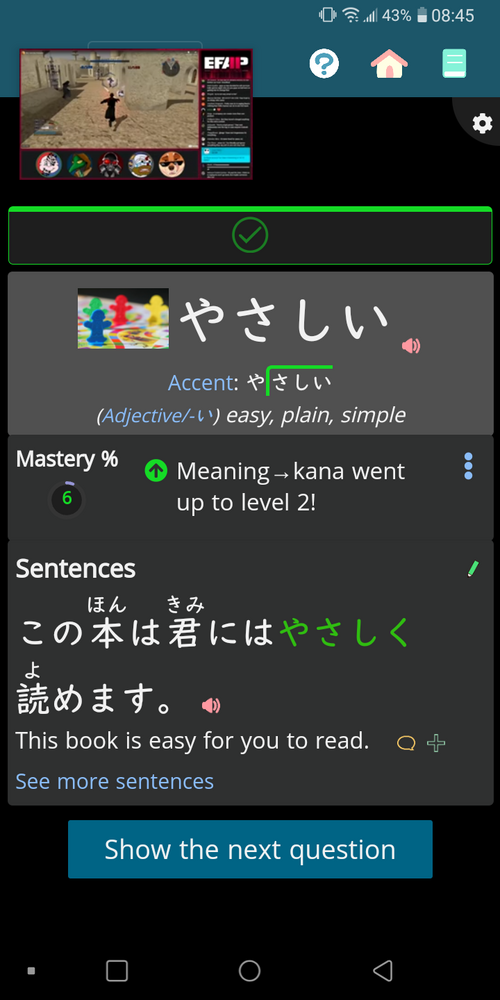
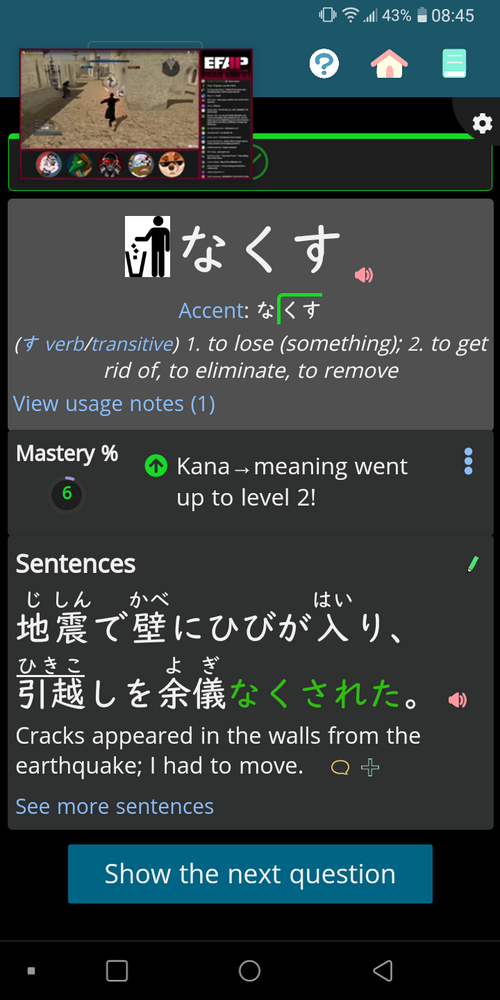
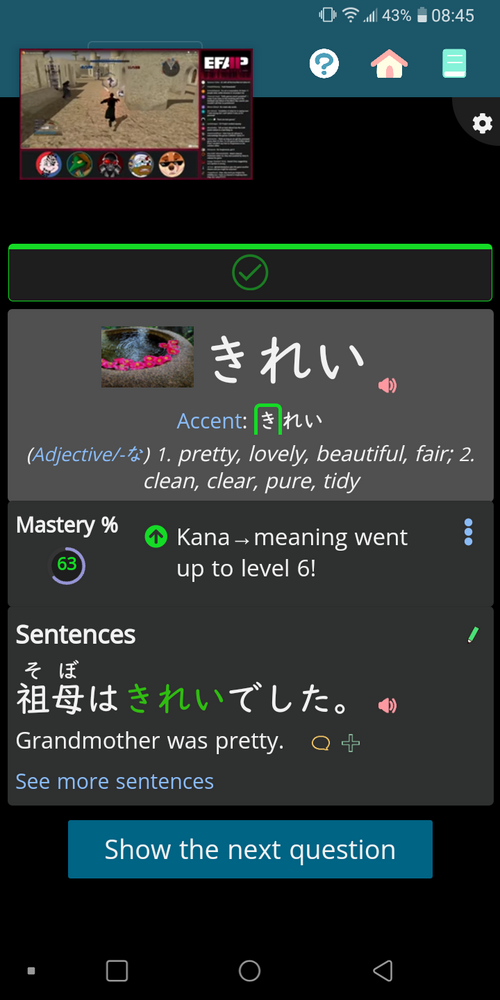
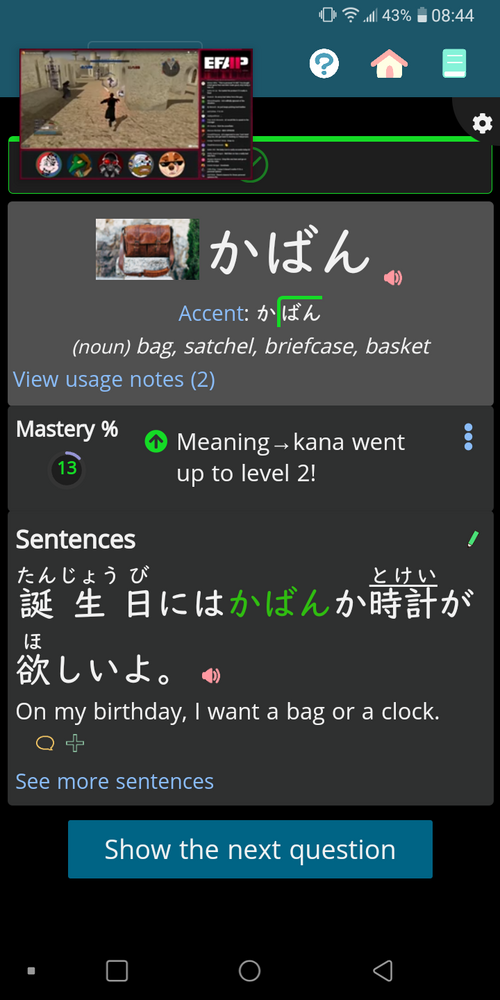
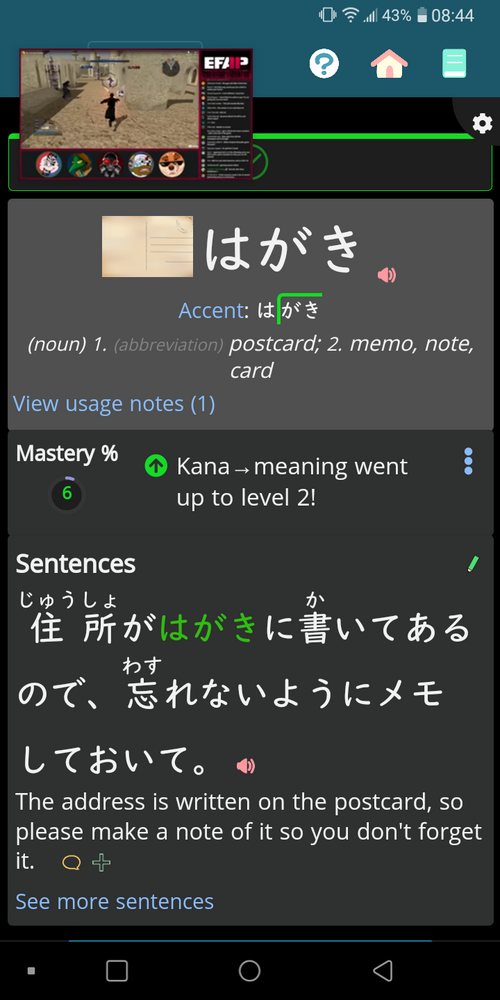
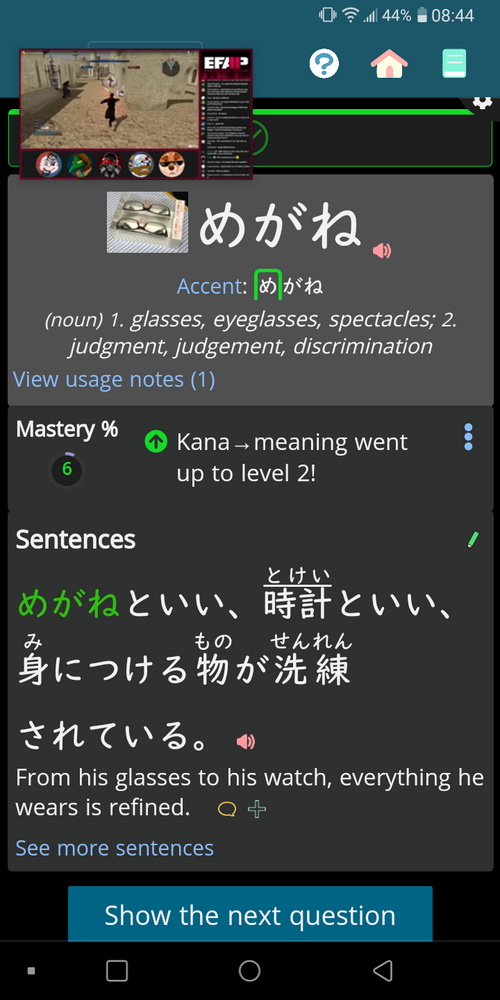
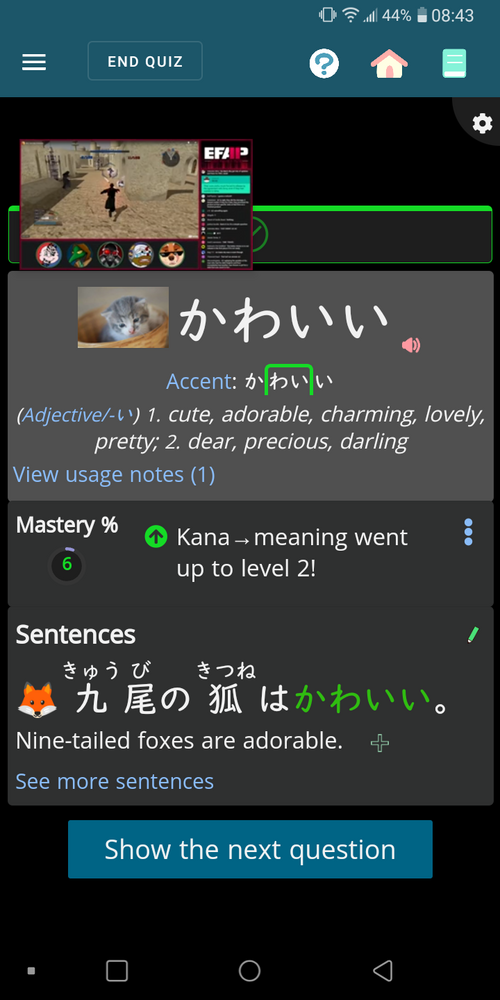
These are just some of the dozens of examples I've encountered thus far this morning of words that used to be in kanji having randomly had their kanji removed.
I am also wondering the same thing. I think these changes have something to do with the dictionary being updated to the latest version. I am more so inconvenienced by the fact that it reset all of the mastery levels on the words that were changed.
Renshuu gets its dictionary data from JMdict, which is what curates the flags on words as being regularly written in kana or not. It's not really under Renshuu's control, it just absorbed that data whenever the dictionary updated. That must have happened recently, resulting in a lot of words having their kanji spellings marked "rare" and therefore no longer being tested (and thus changing from kanji-related study vectors over to kana vectors, which will have different mastery levels).
As of now, there's no way to only enable studying "rare" kanji spellings on individual words. It's a global setting that's all-or-nothing.
Renshuu gets its dictionary data from JMdict, which is what curates the flags on words as being regularly written in kana or not. It's not really under Renshuu's control, it just absorbed that data whenever the dictionary updated. That must have happened recently, resulting in a lot of words having their kanji spellings marked "rare" and therefore no longer being tested (and thus changing from kanji-related study vectors over to kana vectors, which will have different mastery levels).
As of now, there's no way to only enable studying "rare" kanji spellings on individual words. It's a global setting that's all-or-nothing.
Damn... That really sucks.
I'll have to find some kinda work-around, because SO MANY kanji terms got turned into kana terms, it's actually nuts. I have no idea why they (whoever makes that dictionary) would randomly decide to be like "screw kanji, we are kana gang here, no more kanji"...
Renshuu gets its dictionary data from JMdict, which is what curates the flags on words as being regularly written in kana or not. It's not really under Renshuu's control, it just absorbed that data whenever the dictionary updated. That must have happened recently, resulting in a lot of words having their kanji spellings marked "rare" and therefore no longer being tested (and thus changing from kanji-related study vectors over to kana vectors, which will have different mastery levels).
As of now, there's no way to only enable studying "rare" kanji spellings on individual words. It's a global setting that's all-or-nothing.
Damn... That really sucks.
I'll have to find some kinda work-around, because SO MANY kanji terms got turned into kana terms, it's actually nuts. I have no idea why they (whoever makes that dictionary) would randomly decide to be like "screw kanji, we are kana gang here, no more kanji"...
So but to understand correctly, how it is written in the dictionary is how people use it in real life? If it shows as kanji, people use kanji? For example neko shows as 猫/ねこ. What do people use? Both? Or kanji and kana is used to explain the kanji?
Renshuu gets its dictionary data from JMdict, which is what curates the flags on words as being regularly written in kana or not. It's not really under Renshuu's control, it just absorbed that data whenever the dictionary updated. That must have happened recently, resulting in a lot of words having their kanji spellings marked "rare" and therefore no longer being tested (and thus changing from kanji-related study vectors over to kana vectors, which will have different mastery levels).
As of now, there's no way to only enable studying "rare" kanji spellings on individual words. It's a global setting that's all-or-nothing.
Damn... That really sucks.
I'll have to find some kinda work-around, because SO MANY kanji terms got turned into kana terms, it's actually nuts. I have no idea why they (whoever makes that dictionary) would randomly decide to be like "screw kanji, we are kana gang here, no more kanji"...
So but to understand correctly, how it is written in the dictionary is how people use it in real life? If it shows as kanji, people use kanji? For example neko shows as 猫/ねこ. What do people use? Both? Or kanji and kana is used to explain the kanji?
For the majority of words (ignoring things like さん、くん) I prefer to learn the kanji forms, even if they are generally written as only kana, because part of learning the kanji forms is learning the readings, which means you also learn the kana.
It is very annoying, though, that such massive changes were made to the dictionary, which drastically alter how I am able to study words.
(As for 猫 / ねこ I've seen it written mostly in kanji in the Japanese I've read, so I assume that writing is more common, but don't know for sure.)
Your point about how you'd expect the dictionary to reflect real life makes sense, but is undermined by how the dictionary randomly had massive changes made to it in a single day. For example: the 125 million citizens of Japan did not all decide, on a random day in July 2024, to no longer write 可愛い with kanji, but the dictionary certainly seems to have decided that...
試験猿
Your point about how you'd expect the dictionary to reflect real life makes sense, but is undermined by how the dictionary randomly had massive changes made to it in a single day. For example: the 125 million citizens of Japan did not all decide, on a random day in July 2024, to no longer write 可愛い with kanji, but the dictionary certainly seems to have decided that...
 conspiracy confirmed
conspiracy confirmed 
I was just hunting for why so many of my mastery levels got tanked. Argh. I’m generally happy to study terms in the form they’re actually used but I was really confused by the change. (くださる getting reset to zero was just, like, I think this is the first actual verb I ever learned in Japanese, why on earth?)
Especially since there’s at least a few terms where I don’t know the kanji yet so I was always looking at the furigana—so it just seemed like they mysteriously dropped to zero.
I do wonder if the “rarely written as” bit could be added to the quiz-answer version of the definition to help it be clearer when this happens? Edit: and maybe a direct way to get to the dictionary entry for an answer without having to go through the sentences?
To be fair, JMDict's tagging of かわいい as being usually kana was from 2016, and renshuu was heavily out-of-date. Same for all the other things that got updated, really, renshuu was just not pulling in these changes as they were made. I would also prefer a way to selectively study the kanji spellings too, but this update should've/would've been done sooner or later anyways.
Also no worries about losing your mastery stats, it's just a separate vector. If you use the kanji vector (either via the option to turn on all rare kanji, or whatever new feature in future) it'll go back to the previous mastery. The meaning mastery should also be shared, I believe.
I don’t know about the rest of you, but it reset all of my vectors for the affected words, not just the Kanji-related ones.
I don’t know about the rest of you, but it reset all of my vectors for the affected words, not just the Kanji-related ones.
I thought so too but I think it’s actually that it hadn’t recorded any of my previous correct answers in a vector that still exists. Even when I typed in the word as kana given a meaning, I think it recorded as meaning to kanji only.
There was an issue with a recent data update to the dictionary. No mastery data has been lost (and if it somehow was, I can always get it restored). I'm in the process of rolling back the change until I can figure out a better way of doing it.
Sorry for the inconvenience!
I just reverted the changes on all JLPT-level (which is 99% of what everyone studies) terms to what it was a day ago, in regards to what kanjis is shown.
If you still see terms that appear to have incorrect mastery data, please feel free to reach out to me.
I just reverted the changes on all JLPT-level (which is 99% of what everyone studies) terms to what it was a day ago, in regards to what kanjis is shown.
If you still see terms that appear to have incorrect mastery data, please feel free to reach out to me.
ありがとうございましたマイコーさん。